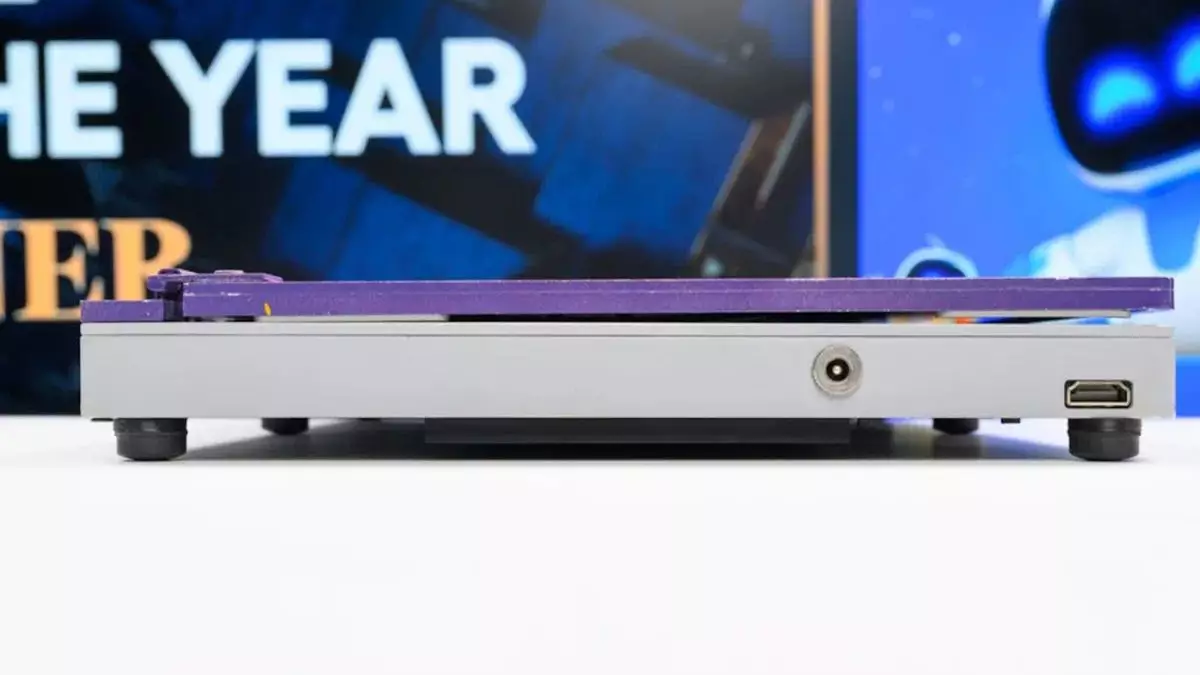In the world of gaming technology, innovations are designed to enhance user experience, but sometimes these aspirations lead to exaggerated outcomes. The BBook AI Original Edition stands as a fascinating, if excessive, demonstration of what happens when ambition meets reality in the realm of gaming laptops. This unique contraption, a 3D-printed homage to retro gaming, raises pertinent questions about portability, function, and what gamers truly need from their devices.
The BBook AI Original Edition is certainly eye-catching, boasting a massive 17-inch display. However, this significant size comes with a hefty downside. At over 31 mm thick and tipping the scales at approximately 9.5 lbs (or about 4.3 kg), its bulkiness is difficult to overlook. While the design may evoke nostalgia, its practicality is questionable. The laptop’s architecture appears more suited for a station in a gaming den rather than a versatile portable experience. Gamers who appreciate the flexibility of taking their play sessions on the go may find this creation more of an impractical novelty than a true portable gaming solution.
Upon closer inspection, the BBook AI’s specifications mirror that of the standard PlayStation 5, which raises the bar for what we should expect from this mod. It features a full-sized keyboard and a 4K IPS panel, yet the screen is limited to a 60 Hz refresh rate. This lack of refresh rate is critical for competitive gaming, where every millisecond counts. The absence of a built-in battery further underscores this device’s lack of foresight; without a battery, the innovation of a “laptop” becomes moot. Despite encapsulating a beloved console’s hardware, the form factor fails to deliver the expected portability that has defined modern gaming laptops.
In addition to its substantial weight and size, the BBook AI’s performance also compromises user experience. Operating at a noise level of 71.3 decibels, this gaming laptop is as loud as a hairdryer when running at full throttle. In an era where ambient and immersive soundscapes play a crucial role in gaming, this audible distraction could severely hinder the experience, particularly during late-night gaming sessions when silence reigns. The ability to game without disturbing others in the household is a significant factor, and the BBook AI, regrettably, fails to meet this expectation.
The BBook AI Original Edition is not offered for sale, yet the projected price tag of around $2,748 reveals another layer of controversy. This amount places it in direct competition with renowned gaming laptops that come equipped with useful features like battery power, robust cooling systems, and enhanced performance capabilities. While the unique artisan approach and impressive craftsmanship of the BBook AI are commendable, the premium attached is hard to justify given its limitations.
In many ways, the BBook AI reflects a broader pattern within the gaming laptop market—a celebration of innovation hindered by the constraints of practical functionality. While gamers crave novelty and unique offerings, they also need devices that cater to their practical gaming needs. The market is teeming with choices, but the BBook AI stands out as a curious misstep, a fascinating design that, ironically, reinvents gaming equipment without understanding the underlying principles of portability and usability.
While the BBook AI Original Edition showcases an imaginative spirit and impressive design, it falls short of fulfilling the critical requirements of a gaming laptop. The passage of this peculiar device into gaming lore serves as a reminder that creativity should ideally work hand-in-hand with practicality. Game developers and hardware manufacturers alike can draw lessons from this clumsy creation—a potent blend of passion and misplaced priorities—proving that in the tech realm, ambition must always maintain a balanced relationship with functionality.


Leave a Reply